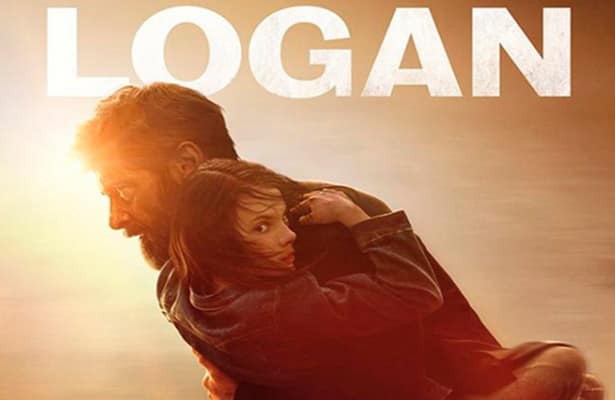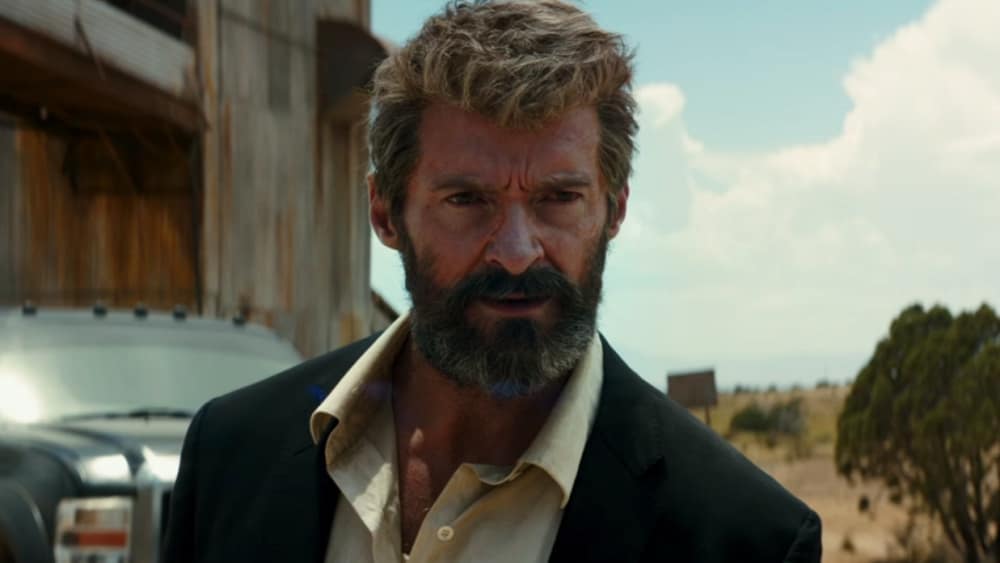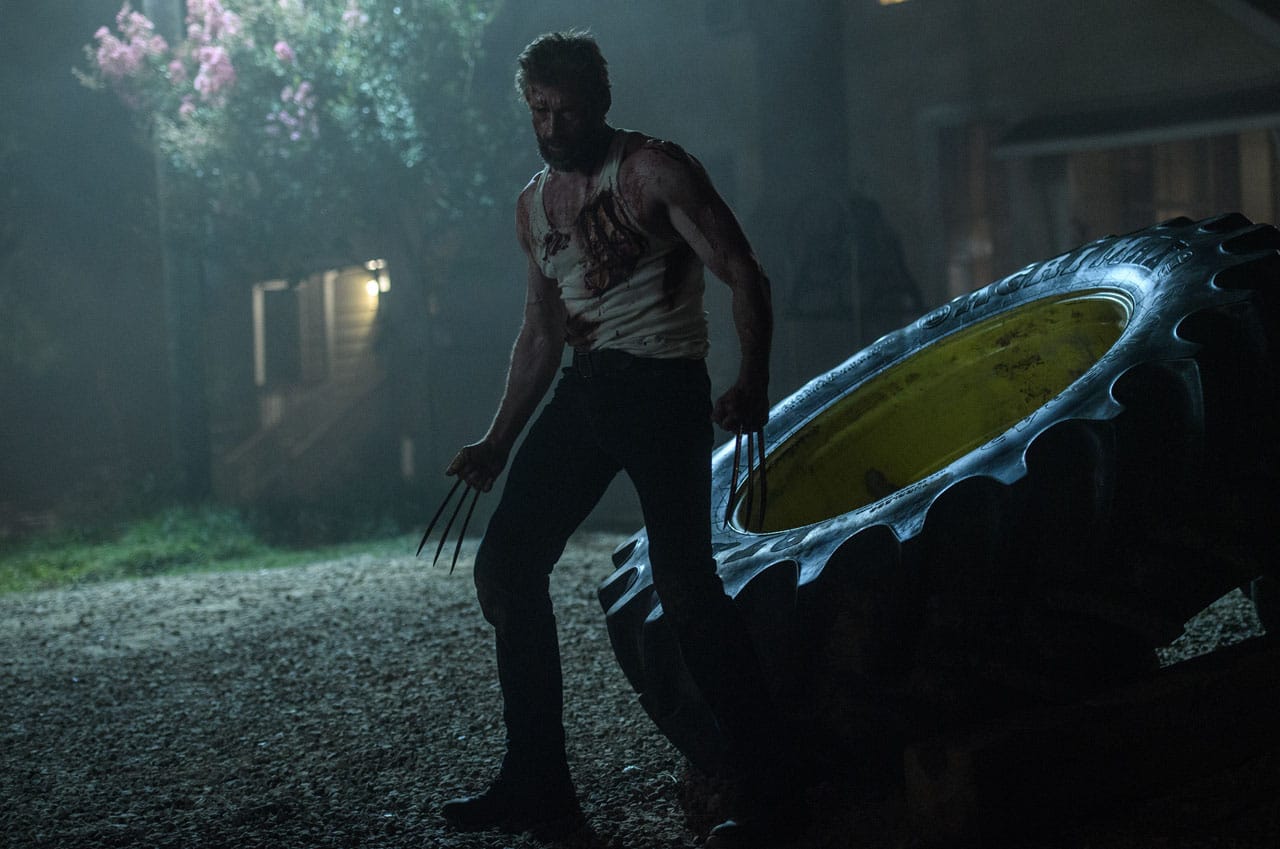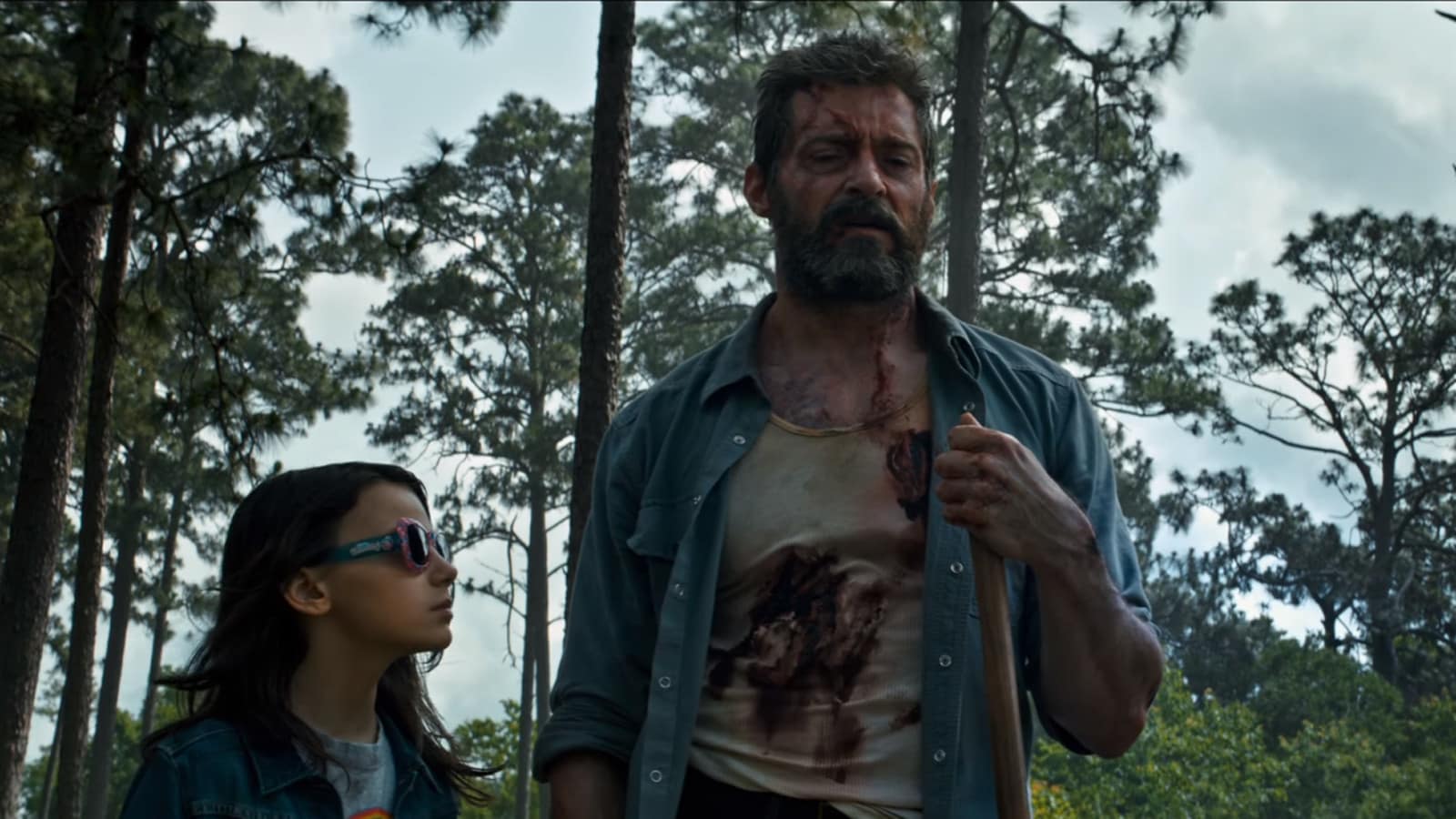
How many times are the third installments of trilogies the best? Going by the X-Men franchise at this point, which yielded X-Men: The Last Stand and X-Men: Apocalypse as abysmal trilogy cappers, never. But Wolverine, embodied by Hugh Jackman now in nine films since his 1999 casting in X-Men has always walked his own path. His spinoff series started with its worst film, progressing slowly from the travesty of X-Men Origins: Wolverine (the worst superhero movie title until Batman v Superman: Dawn of Justice) to director James Magnold’s previous entry, the 2/3 good, 1/3 awful The Wolverine, and, now, to Mangold’s Logan, a Western masquerading as a superhero movie. Make no mistake, this is the best X-Men movie to date, a pastiche of True Grit, Unforgiven, The Professional, and even Little Miss Sunshine, all rolled up in superhero wrapping paper.
Set in 2029, five years after the epilogue of X-Men: Days of Future Past, mutants have all-but-disappeared for reasons unknown. James “Logan” Howlett aka Wolverine is in hiding on the Mexican border, caring for a mentally-ailing Charles Xavier (Patrick Stewart) with the help of fellow mutant Caliban (Stephen Merchant). When a nurse (Elizabeth Rodriguez) with a young girl Laura (Dafne Keen) arrive on their doorstep, it forces Logan to confront his demons if he’s to protect Laura from Transigen, the evil corporation behind experiments to replicate the Weapon X program that created Wolverine, led by Dr. Zander Rice (Richard E. Grant) and his enforcer Donald Pierce (Boyd Holbrook).
It could not be a more perfect send-off for the 18 years Jackman spent playing the character. A theater actor with a love of musicals, he is not who you would expect would have owned the primal rage, morose melancholy, and cynical meanness that defines the character. The actor himself cannot stop smiling outside the role, but you’d be hard-pressed to find more than a smirk throughout his time as Wolverine. The dichotomy between actor and character is like a reminder of the task Jackman accomplished here: making Wolverine not only believable, but human. Someone who is invulnerable to harm and a dick to most everyone should not be sympathetic. In Jackman’s hands, his invulnerability is a curse and his dickishness a clear mask for pain.

It’s this part of Wolverine Mangold intuitively understands. He takes the core themes of The Wolverine – of the character’s exhausting immortality and fear of intimacy – and applies them here again, liberated from the third-act nonsense of that film and emboldened by the R-rating. The rating allows for more than just blood, language, and nudity. The tone itself is so dark it borders nihilistic, a direct reflection of the hero’s mindset. The fatalism is amplified for fans of the whole franchise, as the film effectively erases the “happy” ending of Days of Future Past, after all the timey-wimey shenanigans to save mutants in that movie.
Dafne Keen is a force to be reckoned with as Laura aka X-23, a young mutant imbued with Wolverine’s powers. She plays the near-mute character with effortless gravitas and truly amazing facial acting for the English-Spanish actress’s feature film debut. Patrick Stewart also gets to give his seventh and best performance as Charles Xavier aka Professor X. The bleakness reaches even the serene leader of the X-Men, now suffering from dementia that makes him dependent on medication and dangerous for anyone but Caliban or Wolverine. The former, an albino mutant played by British actor Stephen Merchant, completes the makeshift family, offering a softer side to the jaded ex-X-Men.
With such a seminal moment for these long-running superheroes, it makes sense the villains would generally take a backseat to the movie’s focus. Model-turned-actor Boyd Holbrook (of Netflix’s Narcos) is like a mix of young Brad Pitt circa True Romance and Kalifornia and Jeremy Renner circa Dahmer, a low-key Midwesterner that mixes leading man looks with real acting chops. He plays the cybernetically-enhanced leader of the mercenary Reavers with appropriate amounts of slime and cunning. His boss Dr. Rice is played by British stage actor Richard E. Grant (seen on the last season of Game of Thrones) who actually underplays his role as the mad scientist behind all of Transigen’s mutant experiments, including Laura’s “creation.”

Logan proves once again “comic book” or “superhero” are insufficient descriptors of these adaptations. For true success involves marrying the ideas of the source material with a tried-and-true genre of film. The Dark Knight is a Michael Mann crime drama. X-Men: First Class is a period Bond film. Guardians of the Galaxy is Marvel’s Star Wars, Ant-Man its heist movie. Logan wears its influence on its sleeve even more overtly; it’s the 1953 Western Shane, a film which is watched by the characters in Logan.
Actor-turned-screenwriter Taylor Sheridan, writer of such modern Westerns as Sicario (and its upcoming sequel Soldado) and recent Best Picture nominee Hell or High Water, said in a THR writers’ roundtable that he liked simple plots so he could focus entirely on the characters. It’s a lesson Mangold and his fellow screenwriters Scott Frank, and Michael Green take to heart, making essentially an Australian chase movie in the vein of George Miller’s Mad Max series. Mangold deftly navigates genre by managing the tone, as he did when he lent the tropes of samurai movies to The Wolverine. He evokes classical cinema such as noir (his underrated sophomore effort Cop Land) and Westerns (his excellent 3:10 to Yuma remake).
(For more on my thoughts on how Logan achieved such critical success, check out my recent column over at Heroic Hollywood).
Realism pervades the picture. Like all good themes, it seeps into all facets, big and small. This is a film that takes place in diners, motels, abandoned areas and forgotten places. It’s about taking care of your old, sickly father figure and caring for a rebellious, angry child. It resonates when these characters forget to take their medicine, or get enough sleep, or fail to start a car. Logan wipes the blockbuster shine away to get at the mundane humblings underneath. The dystopia of the film – one where mutants are gone and humans are more vapid and mindless than ever, where a wall separates countries, where the powerless are ruthlessly exploited – couldn’t be more timely given the dismal state of American politics.
My issues with Logan are quibbles of my own more than any fault of the filmmakers. For example, just a ray or two more of sunshine to make the whole exercise more punctuated would have been nice. At different points, I yearned for more revelation or catharsis, a little more sweetness to balance out the bitter. For all the dividends paid from the darkness and grit, I would have liked a couple more “epic” moments, separated from the pervading bleakness elsewhere. Some revelations could have carried more importance.
Nevertheless, this is a great movie through and through. Whatever plot holes or weak elements exist are no different than those in fellow superhero epic The Dark Knight. This is a movie where the alchemy of the mixture produces something entirely new. It’s a rare treat to see a film series evolve steadily over the course of three films. Indeed, X-Men Origins: Wolverine and Logan are almost diametrically-opposed from the titles down to the hero’s claws yet exist on the same continuum.
Efforts like Deadpool and Logan establish a space for risky, even R-rated, films based on lesser-known or niche adaptations. While the former succeeds as a live-action cartoon with no-holds-barred comedy, the latter is a real-world drama, where even the superpowers are more curse than gift. The movie doesn’t outright reject its pulpy origins either, incorporating X-Men comics into the story itself as a way of commenting on the fiction of superheroism vs. the world-weary facts. Plus, there’s a distinctly comic book-y nemesis for Wolvie to fight that takes symbolism to a whole ‘nother (literal) level. For genre fans like me, it worked, but it might not for everyone.
But whatever a person’s storytelling preferences, there is no denying Logan is an achievement in blockbuster cinema, an auteur’s vision on the level of Christopher Nolan’s Batman movies. It stands out as distinctive in an entertainment industry where movies are becoming more codified. Increasingly, interesting, challenging stories in popular entertainment are funneled into TV due to the dearth of mid-range films between blockbusters and indies. Like the central father/daughter relationship at the center of the movie, I hope Logan‘s success critically (and commercially now) and the end of Jackman’s tenure open up for a new generation of superhero movies in its image.

Be First to Comment